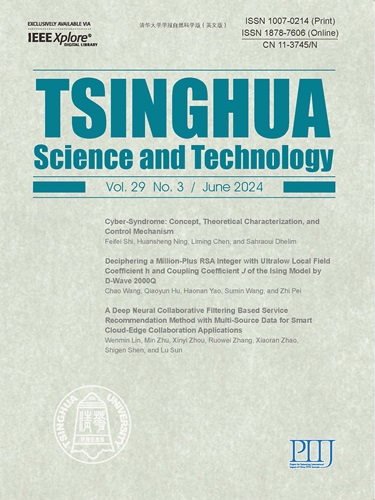基于改进fedag算法的医学图像分类研究
IF 3.5
1区 计算机科学
Q1 Multidisciplinary
引用次数: 0
摘要
联邦学习(FL)技术在解决数据孤岛和用户隐私问题方面具有显著优势,但传统的联邦平均(FedAvg)算法在处理非独立和同分布(Non-IID)数据时分类效果不佳,并且面临重构攻击的风险,这一点在医疗数据涉及敏感的个人健康信息时尤为突出。因此,优化fedag以适应非iid数据分布和加强隐私保护是迫切需要解决的问题,本文从这两个方面进行了研究。为了增强FedAvg在非iid分布下的分类性能,本文将优化后的深度学习模型SE-ResNet18-E与FedAvg结合,得到FedAvg(SE-ResNet18-E)算法。该算法在特征提取和分类任务上利用SE-ResNet18-E模型,充分利用各参与者的数据资源,提高了fedag在非iid分布下的分类性能。此外,该算法具有较高的通信性能。其次,为了增强FL在医疗领域的安全性,在FedAvg(SE-ResNet18-E)的基础上进一步引入阈值Paillier加密,形成Safe-FedAvg(SE-ResNet18-E)算法,解决了医疗FL中重构攻击和私钥泄露的威胁。经过实验验证,Safe-FedAvg(SE-ResNet18-E)算法有效提高了疾病分类的准确率,有效保护了医疗数据的隐私和安全。提高参与FL的医疗机构的信任度。本文章由计算机程序翻译,如有差异,请以英文原文为准。
Research on Medical Image Classification Based on Improved FedAvg Algorithm
Federated learning (FL) technology has significant advantages in solving data silos and user privacy problems, but the traditional federal average (FedAvg) algorithm is ineffective in classifying and faces the risk of refactoring attacks when dealing with non-independent and identically distributed (Non-IID) data, which is especially prominent since medical data involves sensitive personal health information. Therefore, optimizing FedAvg to adapt to Non-IID data distribution and enhancing privacy protection are urgent problems that need to be solved, and this paper investigates these two aspects. In order to enhance the classification performance of FedAvg under Non-IID distribution, this paper combines the optimized deep learning model SE-ResNet18-E with FedAvg to obtain the FedAvg(SE-ResNet18-E) algorithm. The algorithm takes advantage of the SE-ResNet18-E model in feature extraction and classification tasks, fully uses the data resources of each participant, and improves the classification performance of FedAvg under Non-IID distribution. In addition, the algorithm achieves high communication performance. Second, in order to enhance the security of FL in the medical domain, threshold Paillier encryption is further introduced on top of FedAvg(SE-ResNet18-E) to form the Safe-FedAvg(SE-ResNet18-E) algorithm, which solves the threat of reconstruction attack and private key leakage in medical FL. After experimental validation, the Safe-FedAvg (SE-ResNet18-E) algorithm effectively improves the accuracy of disease classification and effectively protects the privacy and security of medical data, and enhances the trust of medical organizations participating in FL.
求助全文
通过发布文献求助,成功后即可免费获取论文全文。
去求助
来源期刊

Tsinghua Science and Technology
COMPUTER SCIENCE, INFORMATION SYSTEMSCOMPU-COMPUTER SCIENCE, SOFTWARE ENGINEERING
CiteScore
10.20
自引率
10.60%
发文量
2340
期刊介绍:
Tsinghua Science and Technology (Tsinghua Sci Technol) started publication in 1996. It is an international academic journal sponsored by Tsinghua University and is published bimonthly. This journal aims at presenting the up-to-date scientific achievements in computer science, electronic engineering, and other IT fields. Contributions all over the world are welcome.
 求助内容:
求助内容: 应助结果提醒方式:
应助结果提醒方式:


